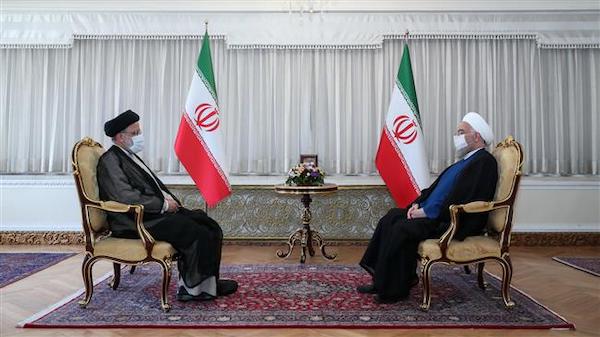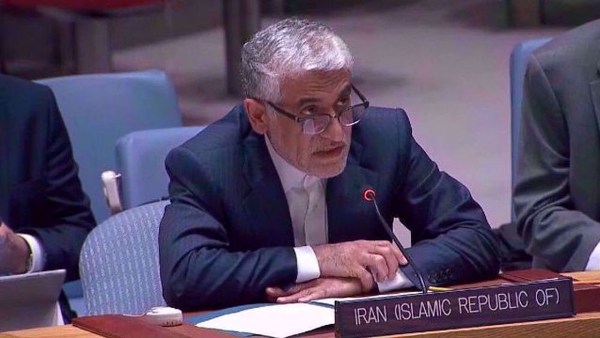
Outgoing Iranian President Hassan Rouhani (R) meets with President-elect Seyyed Ebrahim Raeisi at the presidential office in Pasteur Street in central Tehran, Iran, on June 23, 2021. (Photo by president.ir)
Outgoing Iranian President Hassan Rouhani has met and held talks with his successor-to-be President-elect Ebrahim Raeisi ahead of the official transition of power in the Islamic Republic, which is slated for August 3.
"President-elect Seyyed Ebrahim Raeisi came to [the presidential office in] Pasteur [Street in central Tehran] to meet with President Hassan Rouhani. The transition of power is proceeding in a professional, civil and ethical manner," Alireza Moezzi, the deputy head of the Iranian presidentís office for communications wrote in a post published on his Twitter page on Wednesday.
Raeisi stresses preservation of Iraniansí dignity in 1st public address as president elect
It was the second meeting between Rouhani and the Iranian president-elect since the June 18 presidential election.
The first meeting was held on Saturday, only hours after Raeisi took an unassailable lead in presidential election count.
On Sunday, Rouhani directed his cabinetís economic coordination committee to provide a report on the countryís economic status to the president-elect.
Rouhani asked the board of directors to report to the president-elect on the state of the countryís economy and the measures adopted by his administration.
Raeisi, the incumbent Judiciary Chief of Iran, won the June 18 presidential election by a landslide.
At a presser on Saturday, Interior Minister Abdolreza Rahmani-Fazli said out of a total of 28,933,004 votes cast in the presidential election, Raeisi garnered over 17.9 million votes, followed by Mohsen Rezaei who secured 3.4 million.
Nasser Hemmati garnered 2.4 million votes, and Amir-Hossein Ghazizadeh-Hashemi won almost one million votes.
The president-elect had announced in his electoral campaign that he has set an agenda for securing the removal of the sanctions imposed on the Iranian nation, emphasizing the need for the countryís economy to be fortified in the face of sanctions or any other shock that it might face.
LINK: https://www.ansarpress.com/english/23012
TAGS:






























 Iran rejects Reuters report on deal in Vienna talks as effort to boost Western sideís standing
Iran rejects Reuters report on deal in Vienna talks as effort to boost Western sideís standing 




